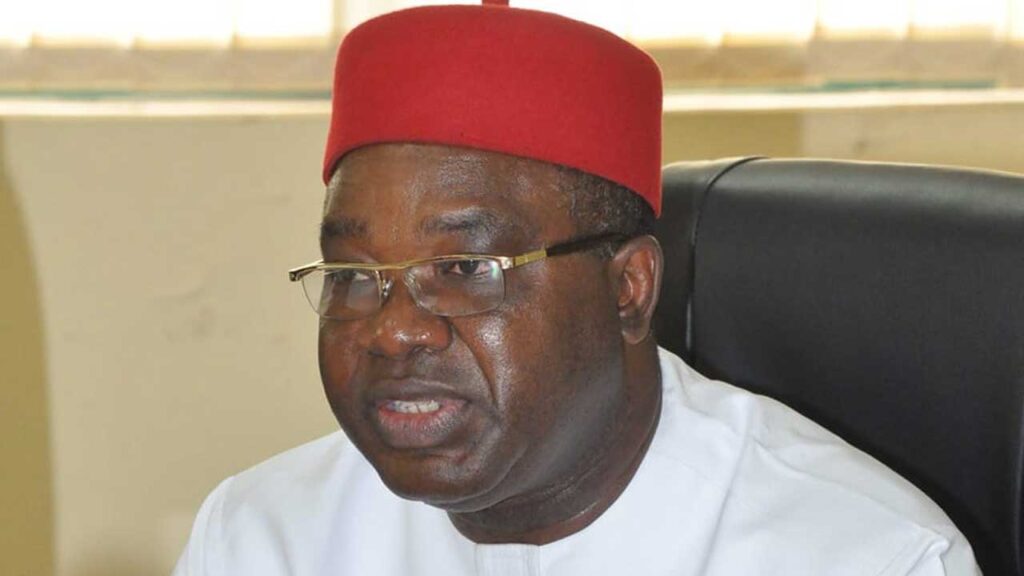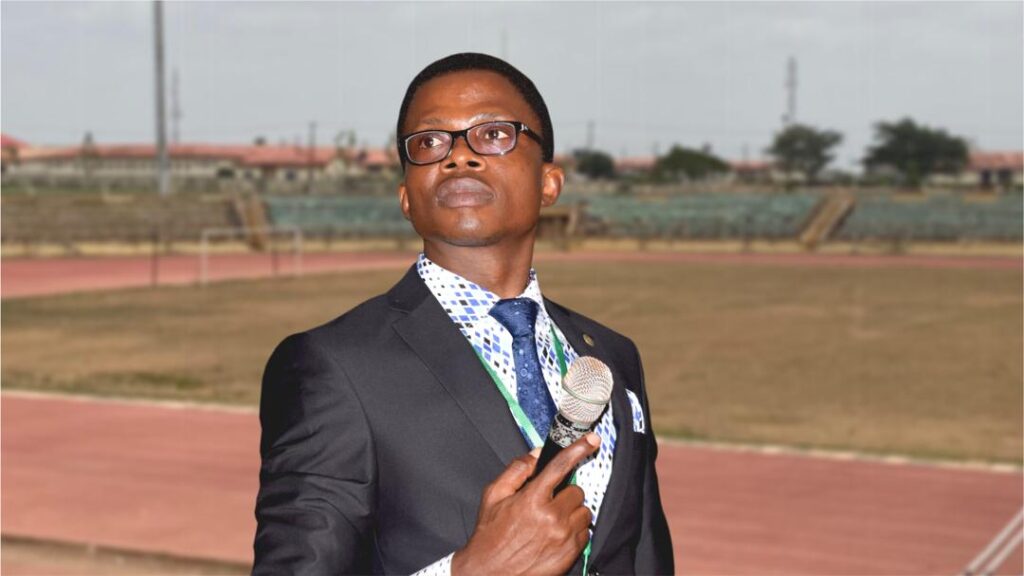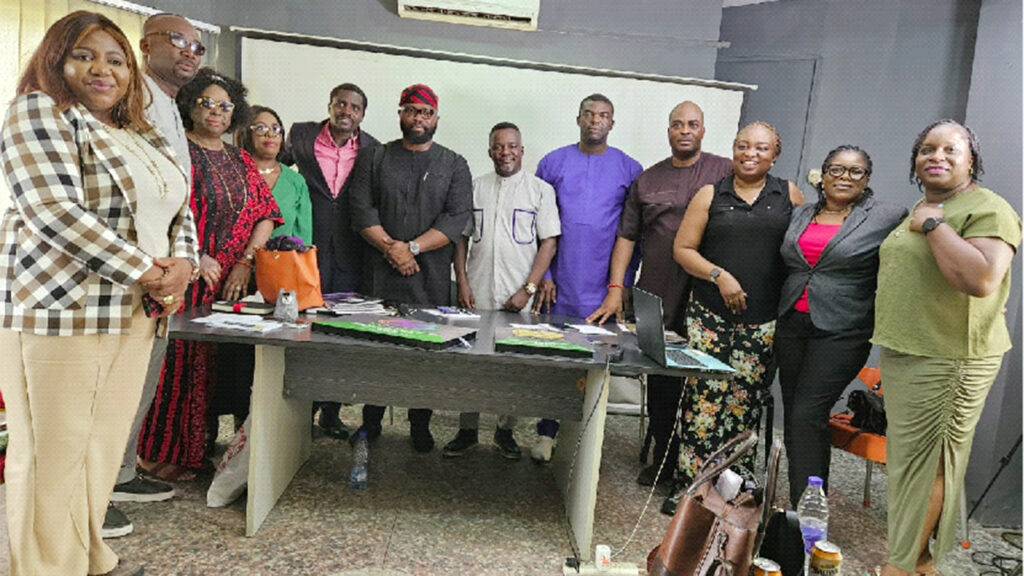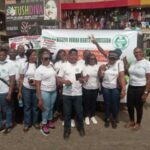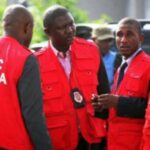
Tony Ojukwu (SAN) is the executive secretary of the National Human Rights Commission (NHRC). In this interview with AMEH OCHOJILA, he speaks about the Commission’s effort in combating human rights abuses, mechanism to assist indigents get access to justice, issues about the implementation of the #EndSARS panel reports recommendations and Nigeria’s benefit of becoming a member of the Global Alliance of National Human Rights Institutions (GANHRI), among others.
What is your plan for indigent Nigerians who cannot access justice?
It’s really worrisome that the number of people who can’t access justice is quite enormous. It’s very disturbing despite the fact that the constitution makes provision to assist people who cannot ordinarily afford legal representation. The system should be able to assist them to access justice. That is why organisations like the Legal Aid Council (LAC), the NHRC and the Federal and States’ Ministry of justice have established offices such as citizens’ rights and public defenders, among others. These are all gamut of activities. However, the challenge is still there, which is the ability to give access to justice to everybody. For instance, we have only one office in every state. A state like Kano has about 44 Local Governments. So, if you have an office in Kano, it still won’t be able to reach everybody.
So, what we have done is to establish a toll-free number, so people can call and make their complaints. If it is something that requires legal advice, we give this advice free of charge. If it is something that requires further actions, we have lawyers that can assist. It may be something that requires to be referred to the attorney general of either state or federation or legal aid council. We do those kinds of references. We also receive references from those organs established to help access justice. If you go to the prisons you see a lot of people who have been in detention longer than necessary, if they were convicted and sentenced. Some people have been convicted of murder and they have no lawyer who can help them to file an appeal.
We go to some of these places but how many can you visit when you don’t have the resources to do all you are supposed to do? So, I think the challenge of providing access to justice is quite enormous, the structures on ground now are not able to support every need for access to justice. However, I think stakeholders like the civil society groups are helping out.
The NHRC Act provides for a human rights fund. Last year, you said plans were underway for its launch. What is the update on it?
It’s still work in progress. However, we need the buy-in of state governments because we have offices in the 36 states and they are providing services to indigenes of those states. We work with state institutions to make sure that the laws being passed recognise human rights.
There is every reason state governments should support the human rights fund, which will also be used to increase human rights activities in their states. A governor can give money and say he wants it to be used in his state. There is nothing wrong with that because the fund receiver has the obligation to comply with what a donor is requesting. So, I encourage state governments to pick interest in this because all these things help to reduce conflict and bring peace to the states.
What plans are in place to leverage Nigeria’s involvement in the GANHRI Bureau and its various working groups?
GANHRI Bureau was established as a result of a resolution of the UN in 1993. All countries that are members of UN were enjoined to form National Human Rights Institutions (NHRI) for the purpose of promotion and protection of human rights and then the body that will also coordinate all these NHRI to ensure that they are established in line with the directive of the UN under the Paris principles. To be on the board, you have to be recognised as one of the NHRI that are at the forefront of promotion and protection of human rights both in the country, continent and worldwide.
The membership of GANRHI provides us an advocacy tool to challenge the leadership of Nigeria to live up to expectation. I believe that with that position, Nigeria will now take seriously its duties to protect human rights.
We are Committee members on Aging, Migration, and other human rights violations. When you are a member of such a committee, it gives you an opportunity to deepen research activities in the local domain and gain international perspective to attract development partners that will help civil societies in Nigeria.
The membership will also help us to look into our legislation next year. Nigeria will not be lacking in showcasing the achievements it has made in the promotion and protection of human rights.
What specific actions does the NHRC intend to take to collaborate with relevant stakeholders in ensuring the effective implementation of Nigeria’s ratification of the AU Charter on Persons with Disabilities and the AU Charter on the Rights of Older Persons?
The ratification by Nigeria is a positive statement that the government is now ready to look at any initiative that will improve the protection of rights of persons with disabilities and the older persons. The government has already started. You will recall that there is already a senior citizens centre, which has been established to deepen awareness of the rights of older persons. With infrastructures in place to make old age more comfortable, this shows that the government is ready to do more.
Also, we are at the forefront to establish a legal framework for the successful implementation of those charters. At the UN level, all the vulnerable groups have specific international legal instruments protecting their rights, such as children, women and persons with disabilities. It is only the older persons that don’t have international instruments at the UN level that protect their rights. The AU has conditioned the right of older persons to be in line with the culture of Africa.
You should have some sort of collaboration with Ministries, Departments and Agencies (MDAs). Can you share with us in specific terms?
We have been working with the Senior Citizens Centre (SCC) in creating awareness, empowering older persons and developing policies. The commission is also working with civil society organisations to make sure that the benefits of both the SCC Act and the AU on the rights of older persons are felt in Nigeria. Advocacy is also our key strategy. We engage in sensitisation and enlightenment to MDAs to ensure that infrastructure is provided in the right way. The same applies also to the rights of persons with disabilities. Any public building should have a lift and ramps, banks should include provisions for people in wheelchairs, public schools should have brails and aid to help vision or hearing-impaired people. We will continue to work, to ensure that our people take advantage of these. If infrastructure is done to accommodate all those, they will enhance the protection of the environment for people with disabilities and older people.
Why is the Special Independent Investigative Panel (SIIP) on Human Rights Violations during counter-insurgency operations in the Northeast taking this long to conclude?
The thing about investigative institutions like us is that you may start a process and discover it’s not as easy as you think. You’ll discover that a lot of forensic has to be done. There are some locations we are not able to access till now. As we started the investigation, a lot of information came up about those stakeholders we have to engage. We started off thinking of direct stakeholders.
It’s not easy to start off an investigation today and it works out in that three months. The most important thing is to do a thorough job at the end of the day. I am satisfied that the panel is doing a very thorough job and by the time they finish, everyone would be very satisfied.
Considering that the recommendations of the previous public hearings have not been fully implemented, how would you inspire confidence about future panel recommendations?
Are you aware of panels like the #EndSARS and the Apo eight? Recall also the case of the young Okada riders attacked by the DSS in 2012. They claimed that they were terrorists and the commission thought that there was more than meets the eye. We investigated the allegation and found out that these were young Okada riders who had nothing to do with terrorism. They were just taking shade. It was just someone who owned the property and wanted to recover it from squatters that used it to evict them forcefully. The commission awarded damages and compensation of N135 million against the DSS.
Again, during the Odi invasion, and that of Zaki Biam in 2003, when those communities were invaded and a lot of people killed, the recommendations of the panels were made and the government was not willing to pay the commission.
We wrote to the then President, Olusegun Obasanjo, insisting that it has to remedy human right violations. Eventually, some level of compensation was paid for razing down Zaki Biam. Again, we have the #EndSARS protest of 2020, where with the guidance of the commission, the Federal Government directed all states where the protests took place to set up an investigation panel to find out the violation of human rights. Nine states out of 36 established the panels. The commission established one in Abuja and we have been able to conclude our sittings. The victims have been paid N438 million compensation. This was done publicly through bank transfers that are verifiable and traceable. Lagos and Ogun states also paid compensations.
However, most of the other states have not paid compensation. There is this argument among states that the panel was directed by the Federal Government and so, it should pay it. The violators are mostly Police Officers who are Federal Government agents. The purpose of decentralising the setting up of the #EndSARS panel was because indigenous people of these states were involved and the police officers were serving these states when those violations took place. It is not that the Federal Government is shying away from responsibilities, it did direct the conduct of the investigations, what I expect the state governments to do is to conclude and report to the FG when they are done with a view to recovering what they have spent. That is easier and cheaper in my view.
Just as the state constructs federal roads in their states because their indigenes use them and then claim the costs from the FG. Why is this one not done that way, since it will help to promote peace in the states? The FG is not denying that the police officers, who are its officers, committed those violations as stated in the recommendations of the various state panels. If any recommendation requires disciplinary action, it is passed on to the Police Service Commission (PSC), which is the sole organ responsible for discipline, appointment and promotion of the police officers. In Abuja, we have passed police officers that were involved to the PSC.

